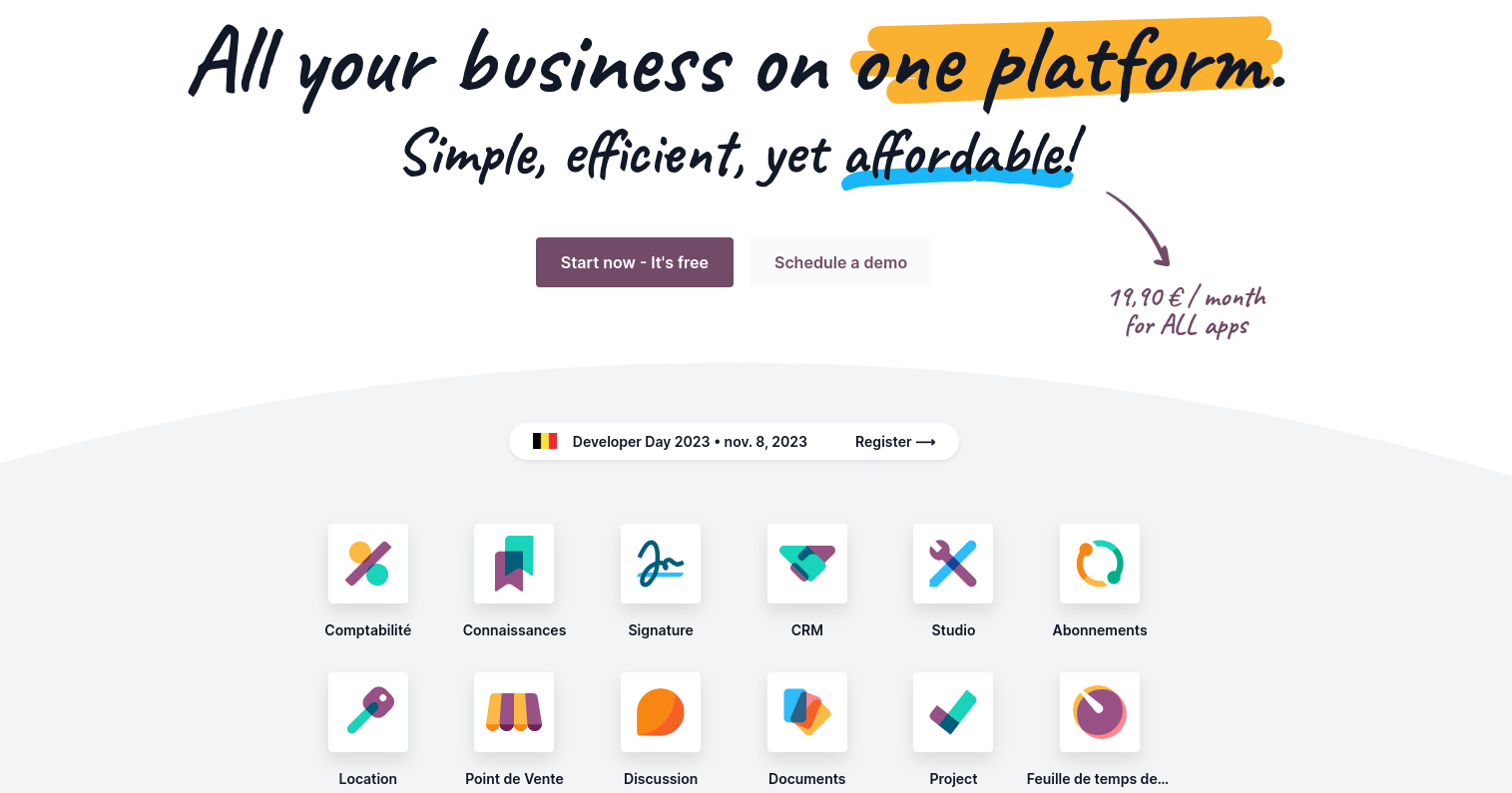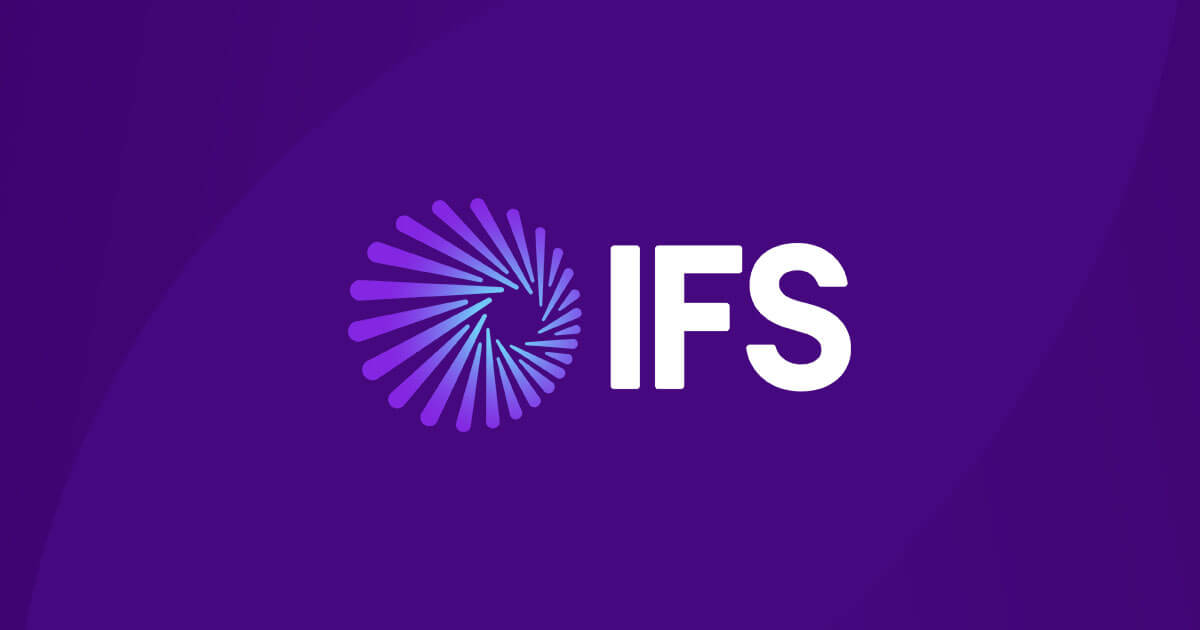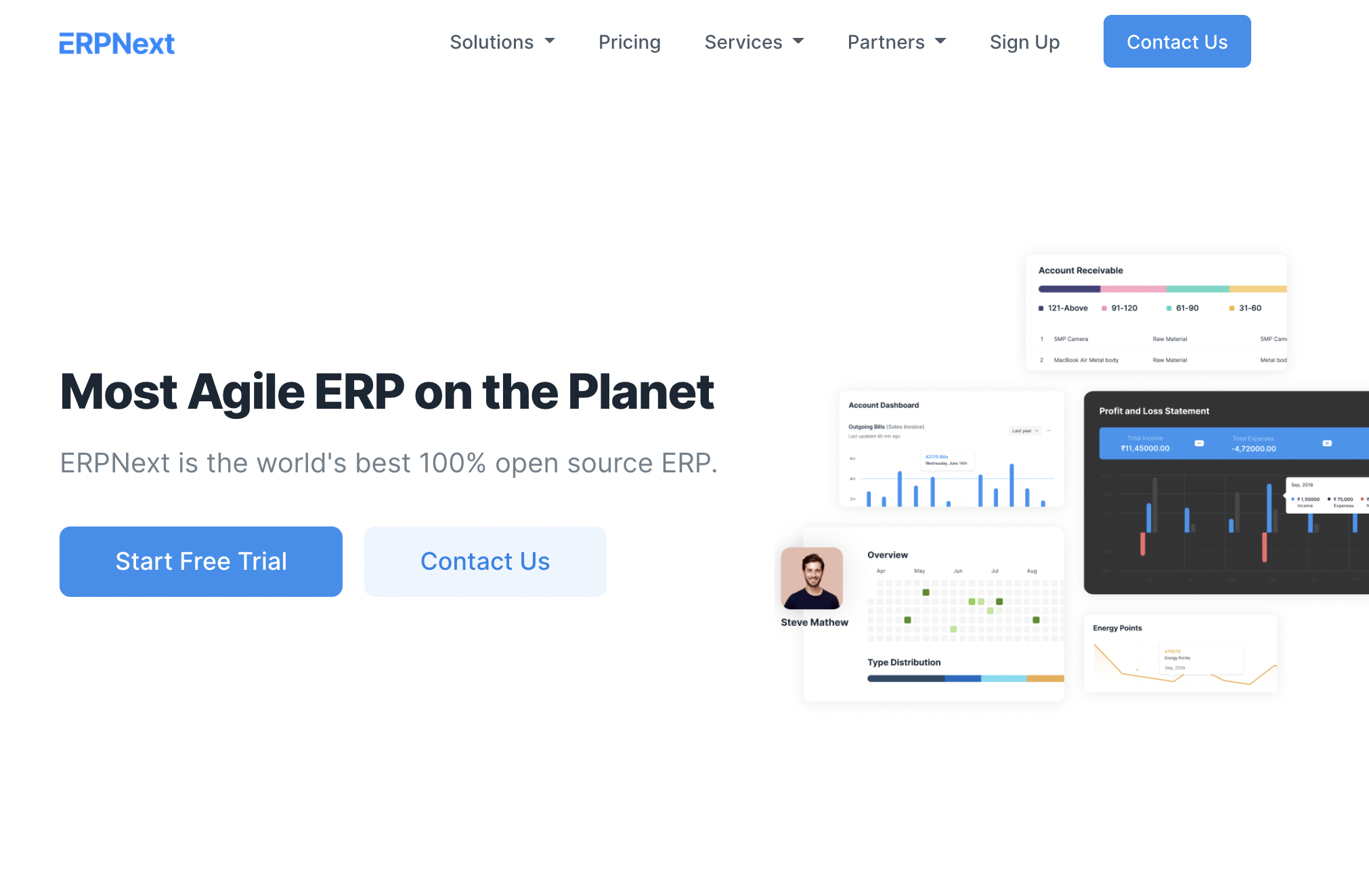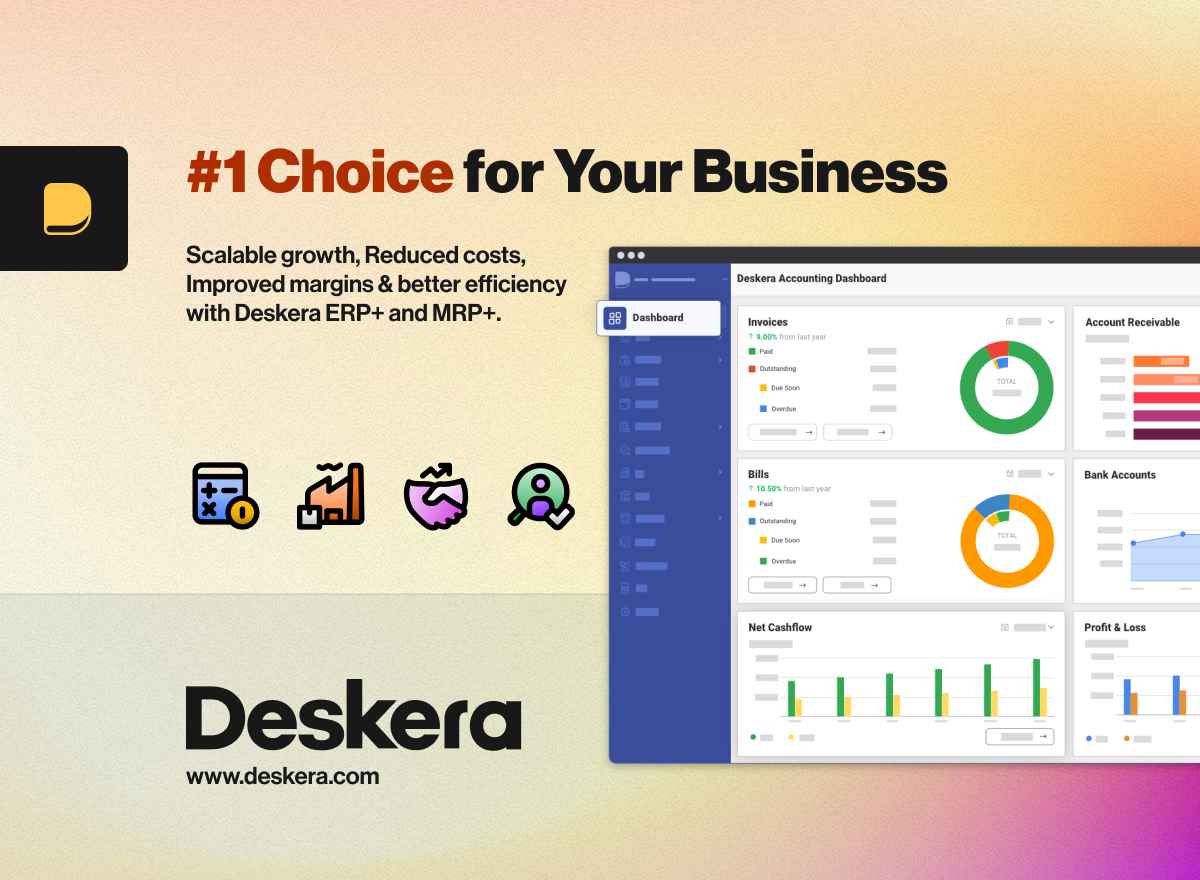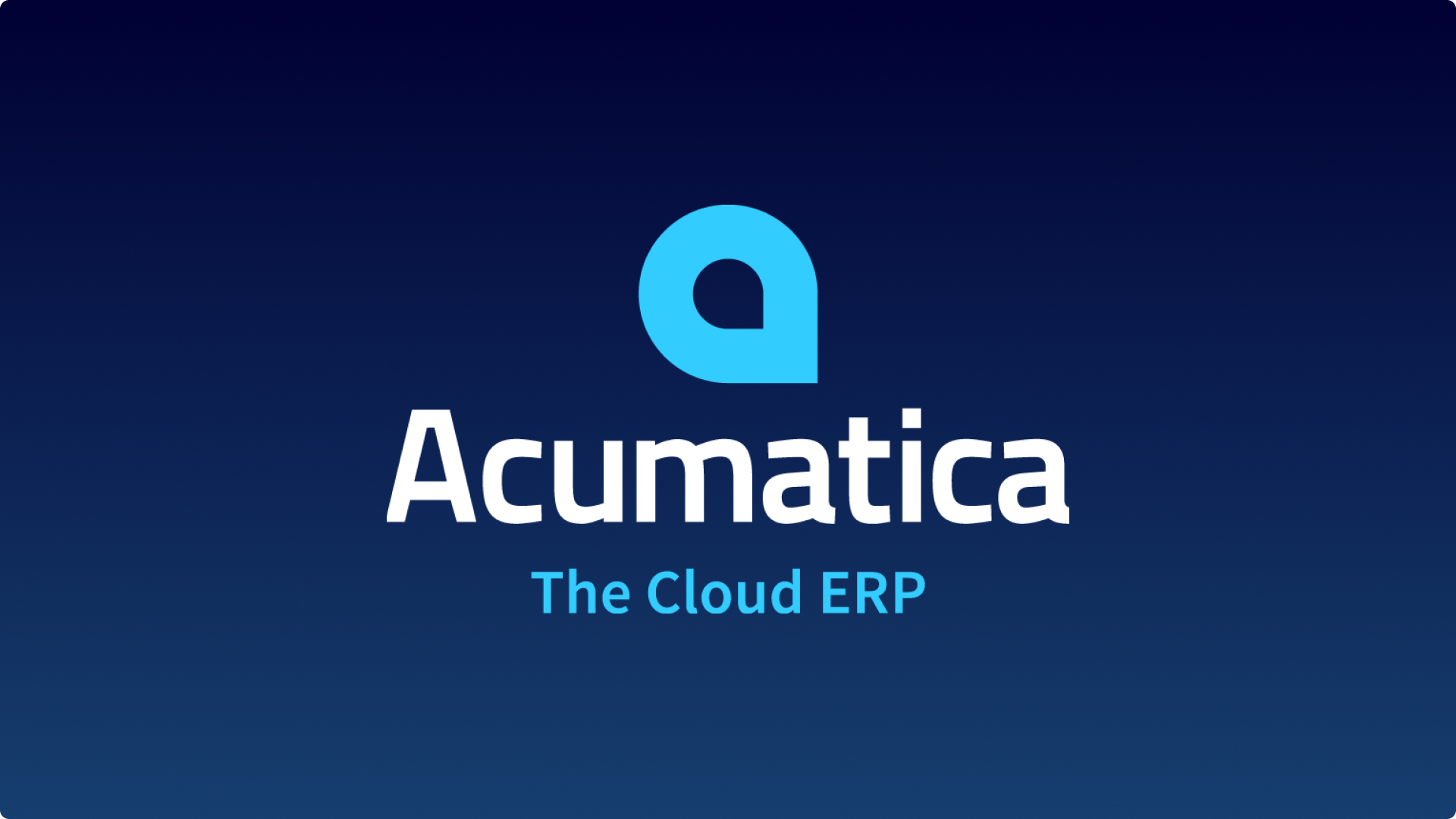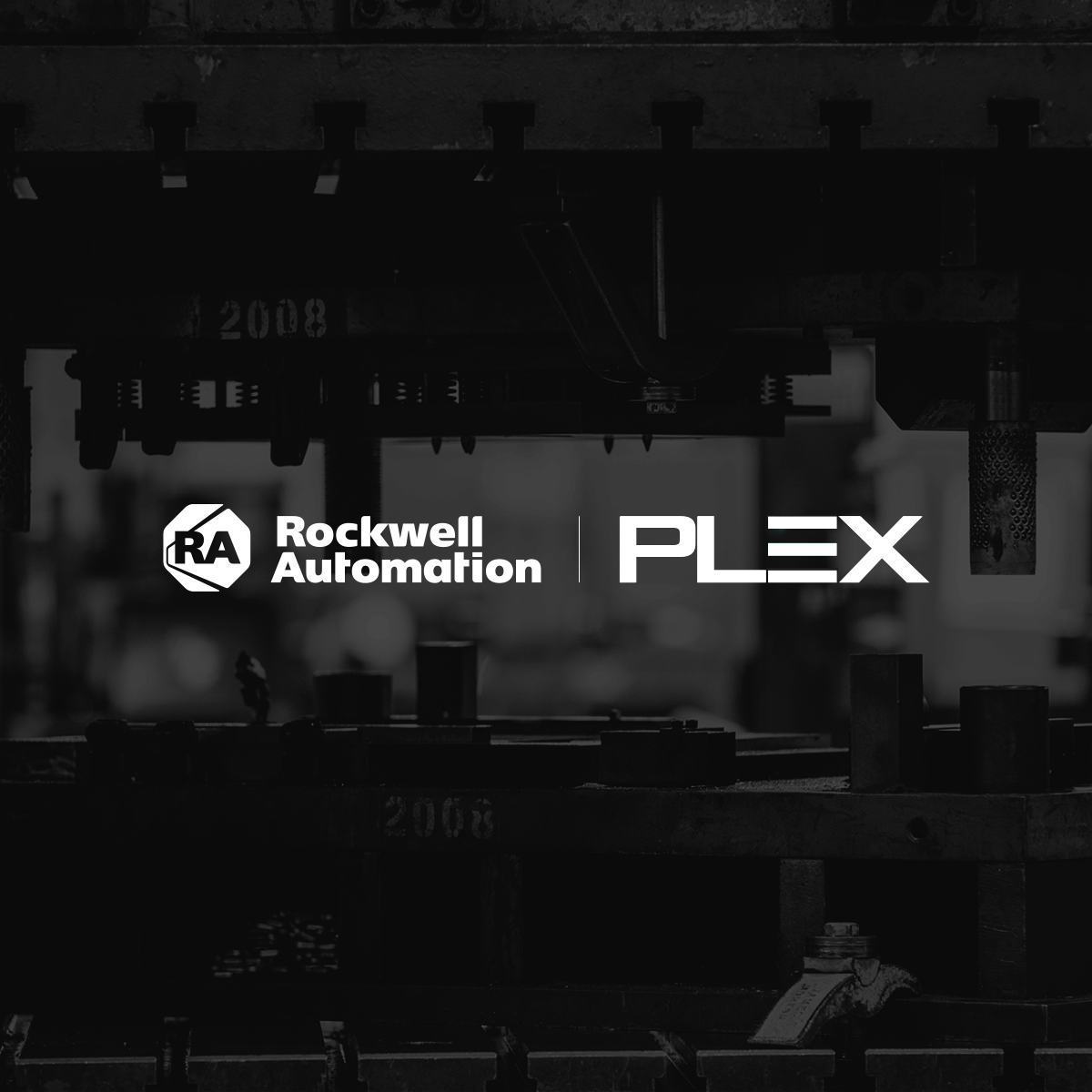Introduction
As distribution and wholesale businesses look to streamline operations and improve customer experience in 2023, selecting the right ERP software becomes critical. An ERP system can help automate workflows, provide real-time insights and integrate key business functions on a single platform. However, with many options on the market, choosing the best distribution ERP isn’t straightforward. This guide evaluates the top 15 solutions based on features, pricing, support and reviews to help you find the right fit for your business.
Methods of Evaluation
To determine the top distribution ERP software options, we considered several key factors: functionality for distribution operations like order management, inventory, procurement and delivery; industry focus and presence; pricing and deployment options; customer reviews and ratings on sites like G2, Capterra and TrustRadius; number of customers and user base; and additional metrics like number of backlinks, traffic and keyword trends which can indicate a software’s online reputation and market dominance.
1. SAP Business One
SAP Business One is an ERP software developed by German software giant SAP. It is an on-premise and cloud-based solution aimed at small and mid-sized businesses. With over 26,000 customers in over 130 countries, SAP Business One offers comprehensive functionality for key business processes like accounting, finance, sales, and operations.
Pros: Key advantages of SAP Business One include:
– Very customizable and scalable to the needs of growing businesses
– Strong financial and accounting capabilities for managing finances
– Rich reporting and analytical tools for data-driven decision making
– Global presence and large customer base for expertise and support
Cons: A potential disadvantage is that as an ERP software, SAP Business One requires more configuration and setup compared to simpler accounting software. This increases implementation time and costs.
Pricing: SAP Business One pricing starts at $1500 per user per year for the basic on-premise version. For the cloud version, pricing starts at $50 per user per month on annual commitment. Add-ons and customization services are priced separately.
Some key stats about SAP Business One include:
– Over 26,000 customers globally
– Supports over 30 languages
– Serves customers across all industries
– Integrates with over 700 add-ons from SAP’s partner ecosystem
2. Odoo
Odoo is an all-in-one open source ERP software that provides various business applications in a single system. It offers fully integrated ERP, CRM, eCommerce, project management, HR, and many more apps to support end-to-end business processes. Odoo has been designed to grow with organizations of all sizes by allowing seamless addition of new modules.
Pros: Key advantages of Odoo include – all apps are integrated in a single system, highly customizable and flexible, robust accounting and financial modules, scalable to the needs of growing businesses, large ecosystem of third party apps for extensibility, robust sales, inventory and MRP tools.
Cons: A potential disadvantage could be the learning curve required to explore all the features of Odoo’s complex and feature-rich ERP system.
Pricing: Odoo has three main pricing plans – Community (free and open source),Enterprise (paid plan starting from $50/month), and Odoo.sh (fully managed Odoo as a service starting from $25/user/month)
Some key stats about Odoo include – it has over 8 million downloads, supports 60+ localizations and languages, has a community of over 180,000 developers and partners, is used by all sizes of businesses across various industries including manufacturing, services, retail etc.
3. Infor CloudSuite Distribution
Infor CloudSuite Distribution is a leading ERP software designed specifically for distributors. It offers preconfigured industry specific capabilities to help distributors streamline operations, manage multi-channel sales, and gain visibility across their business. With over 40 years of experience serving the distribution industry, Infor CloudSuite Distribution understands the unique challenges distributors face.
Pros: Some key advantages of Infor CloudSuite Distribution include:
– Industry-specific capabilities tailored for distribution workflows
– Designed for multi-channel selling through all sales channels
– Robust inventory and order management tools to efficiently fulfill orders
– Strong global implementation network for go-live support worldwide
Cons: One potential disadvantage is a lack of flexibility for highly customized requirements compared to some niche distribution ERP alternatives.
Pricing: Infor CloudSuite Distribution pricing is subscription-based starting at $150 per user per month for the essentials edition.
Some key stats and capabilities of Infor CloudSuite Distribution include:
– Purpose-built for distribution with capabilities for inventory, order, and warehouse management
– Supports multi-channel selling including ecommerce, retail, and direct sales
– Robust reporting and analytics to provide visibility into KPIs
– Integrated supply chain functionality for procurement and logistics
– Global implementation network for support across the world
4. Epicor Prophet 21
Epicor Prophet 21 is an advanced distribution ERP software designed for complex distributor and wholesaler needs. Prophet 21 provides powerful order management, inventory control, purchasing, accounting and CRM capabilities built specifically for distribution businesses.
Pros: Key advantages of Epicor Prophet 21 include powerful order management and CRM, smooth multi-site and multi-unit capabilities, robust production and manufacturing tools, and strong vertical and geographic functionality.
Cons: One potential disadvantage is the upfront costs and longer implementation time required for a full ERP system compared to simpler alternatives.
Pricing: Epicor Prophet 21 pricing varies based on factors like number of users, modules, customization needs, and support plans. Generally, customers can expect an initial licensing and implementation fee in the five to six figure range with ongoing monthly or annual support and maintenance fees.
Some key stats about Epicor Prophet 21 include: – Used by over 5,000 distributor customers worldwide – Supports multi-site, multi-unit functionality out of the box – Integrated distribution-focused modules like inventory optimization, available-to-promise, and demand forecasting – Over 30 years of continuous updates and enhancements based on customer feedback
5. IFS Applications
IFS Applications is a global enterprise software company recognized for developing and delivering solutions for asset-intensive industries. Founded in 1983, IFS has over 3700 employees and customers in over 100 countries. Their flagship product is IFS Cloud, an integrated ERP, EAM, FSM and ESM solution designed to manage assets, service operations and supply chains for manufacturing, energy, telecom, transportation and utility companies.
Pros: Key advantages of IFS Cloud include:
– Feature rich production and quality modules
– Robust global multi-site capabilities
– Powerful service and maintenance tools
– Flexible deployment on-premise and cloud
Cons: A potential disadvantage is that the solution may have a steeper learning curve for users compared to some other ERP options due to its breadth of functionality across different modules.
Pricing: IFS Cloud pricing varies based on solution modules, users, and customization needs. It is typically sold via a SaaS subscription model starting at around $150 per user per month for basic ERP functionality.
Some key stats about IFS Cloud include:
– Over 1000 customers worldwide
– Implemented in industries like manufacturing, utilities, telecom and more
– Available in the cloud or on-premise
– Supports 25+ languages
6. ERPNext
ERPNext is an open source enterprise resource planning (ERP) software developed by Frappe Technologies. It is used by over 50,000 companies worldwide for functionalities like accounting, CRM, inventory management, manufacturing and more. ERPNext presents a user-friendly interface on the cloud to manage business processes and gain real-time insights.
Pros: Some key advantages of ERPNext include:
– It is open source which means it is free to use and customize as per business needs.
– Highly customizable and configurable to different industries and business processes with the help of custom fields, scripts and modules.
– Robust feature set to manage end-to-end business functions from a single unified platform.
Cons: One potential disadvantage could be the learning curve required to customize and configure the system as per complex business needs since it is open source.
Pricing: ERPNext has a freemium business model. The open source version is free to download and use. It also offers paid hosting and support plans starting from $50/user/month for additional benefits like priority support, scheduled upgrades and backup.
Some key stats about ERPNext include:
– Used by over 50,000 companies globally across various industries like retail, manufacturing, services etc.
– Available in over 50 languages with an active community of developers constantly adding new features and translations.
– Provides robust core functionalities like accounting, CRM, inventory management, manufacturing, HR, website and e-commerce, support and maintenance etc. out of the box.
7. Brightpearl
Brightpearl is a leading Retail Operating System (ROS) for retailers and wholesalers. Founded in 2002, Brightpearl is based in London and provides omnichannel,POS and digital commerce software to over 900 customers globally including Reformation, Feathers, and Ripley’s Believe It or Not.
Pros: Key advantages of Brightpearl include:
– Omnichannel fulfillment capabilities to support BOPIS, ship-from-store, endless aisle and more
– Integrated inventory management across all locations and sales channels
– Robust reporting and analytics dashboard to track KPIs and optimize business performance
Cons: A potential disadvantage is that Brightpearl is missing native marketplace integrations for popular third-party marketplaces like Amazon, Walmart and eBay. However, they have built custom integrations for some larger customers.
Pricing: Brightpearl pricing starts at $149/month for the basic plan, covering up to 5 users. Mid-tier and enterprise plans with additional features and unlimited users are priced starting at $299/month and $499/month respectively. Custom pricing is also available.
Some key stats about Brightpearl include:
– Over 900 customers globally across 40+ countries
– Supports omnichannel fulfillment across online, in-store, phone and more
– Integrated inventory and supply chain management across all sales channels
8. Deskera
Deskera is an all-in-one cloud ERP software for small and medium-sized businesses. Founded in 2015, Deskera is headquartered in Singapore and helps businesses digitally transform their operations with its intuitive software suite.
Pros: Some key advantages of Deskera include:
– Intuitive collaboration tools for teams to work together efficiently
– Robust supply chain and inventory management capabilities
– Powerful customer relationship management tools
– Affordable cloud-based solution that scales with business needs
Cons: One potential disadvantage is that it may not be as fully-featured as some expensive on-premise ERP solutions for very large enterprises.
Pricing: Deskera offers affordable monthly pricing plans starting from $30/user/month for their Standard plan.
Some key stats about Deskera include:
– Serves over 15,000 customers worldwide across various industries
– Processes over $1 billion in inventory every month
– Handles accounting, supply chain, CRM and more for SMB customers
9. Acumatica
Acumatica is a subscription-based ERP software system created for mid-market organizations. It offers businesses a flexible, customizable cloud-based solution for managing all aspects of financials, supply chain, project accounting, CRM and more.
Pros: There are several advantages to Acumatica’s distribution ERP solution: It offers a fast and intuitive web-based interface, customizable configuration and workflows for each business, robust distribution and financial modules, and strong cloud and mobile capabilities allowing access from anywhere.
Cons: One potential disadvantage is that like all cloud-based solutions, Acumatica requires an internet connection to access the system and utilize its full capabilities. Offline or disconnected use is limited.
Pricing: Acumatica pricing is subscription-based, starting at $99 per user per month for the standard edition. Additional services like implementation, customizations and additional modules incur additional fees. Volume discounts are available for larger deployments.
Some key stats about Acumatica include: over 3,000 customers in over 40 countries, over 500 native integrations available, 99.98% uptime SLA, certified for SOC 1 and SOC 2 compliance, and integration with popular 3rd party apps like Microsoft, Shopify and QuickBooks.
10. TradeGecko
TradeGecko is a distribution ERP software that helps businesses manage inventory, orders, financials, and more on a single platform. Founded in 2015 and based in Singapore, TradeGecko currently has over 8,000 customers globally across 130 countries. The software offers comprehensive features tailored specifically for product distribution and retail businesses.
Pros: Some key advantages of TradeGecko include:
– Feature-rich for ecommerce distributors with capabilities for inventory management, order management, financials, CRM, and more.
– Robust omnichannel order management allowing businesses to sell through multiple sales channels.
– Advanced inventory and warehouse management tools for tracking inventory levels, locating stock, and automating fulfillment.
– Integrates seamlessly with major ecommerce platforms and marketplaces like Shopify, Amazon, eBay and provides automation between systems.
Cons: One potential disadvantage is that TradeGecko is mainly geared towards mid-market to enterprise-level distribution and retail businesses. It may provide an overkill of features for very small businesses with simpler needs.
Pricing: TradeGecko offers different pricing plans depending on the needs of the business. Starting plans begin at $79/month for basic features up to customized enterprise plans for larger businesses. It also offers a free 30-day trial to test the software.
Some key stats about TradeGecko include:
– Processes over $5 billion in sales annually
– Integrates with over 150 ecommerce channels and marketplaces like Shopify, Amazon, eBay, etc.
– Supported in over 20 languages
– Used by brands such as Skullcandy, SanDisk, Anthropic, and Mercury Ticket
11. OpenBravo
OpenBravo is a cloud-based retail software platform that provides comprehensive ERP and supply chain management solutions. Founded in 2001 and headquartered in Barcelona, Spain, OpenBravo’s platform is used by retailers around the world to power their omni-channel commerce experiences. As an open source platform, OpenBravo is highly customizable and scalable to meet the evolving needs of businesses.
Pros: Some key advantages of the OpenBravo platform include:
– Flexible workflows that can be customized easily
– Open source environment that allows for limitless extensibility
– Effective reporting and analytics for actionable business insights
Cons: As an open source platform, OpenBravo requires more technical expertise and custom development resources compared to some out-of-the-box SaaS solutions.
Pricing: OpenBravo pricing is customized based on business needs, deployment type (on-premise or cloud), number of users, and modules required. Please contact OpenBravo sales for an accurate quote.
Some key stats about OpenBravo include:
– Over 450 customers worldwide across 35+ countries
– Processes over $12 billion in annual retail transactions
– 18+ years of experience in retail software
– Runs in over 20 languages with multi-currency support
12. Ifs Applications
IFS Applications, formerly known as Industrial and Financial Systems, is a Swedish multinational software company that develops and implements enterprise applications for complex asset-intensive industries such as aerospace & defense, manufacturing, and utilities. Founded in 1976 and headquartered in Linköping, Sweden, IFS is recognized as a global leader in ERP, EAM, FSM and asset management solutions.
Pros: Some key advantages of IFS Applications include:
– Scalable platform that can support global operations
– Strong manufacturing functionality including MRP, quality management and shop floor control
– Comprehensive reporting across finance, operations, assets and service management
Cons: A potential disadvantage is that IFS may be more suited for larger enterprise organizations due to its robust feature set compared to smaller to mid-sized businesses with simpler requirements.
Pricing: IFS Applications pricing varies depending on factors like implementation scope, user count and usage requirements. They typically offer both perpetual and subscription-based pricing models. For a customized quote, interested customers are recommended to request a demonstration from an IFS sales representative.
Some key stats about IFS Applications include:
– Over 10,000 enterprise customers worldwide
– 35+ years of experience in developing asset-intensive ERP solutions
– Customers in over 100 countries globally
– Over $1 billion in annual revenue
13. Plex Online
Plex Online is a leading cloud-based ERP software for manufacturing companies. Developed by Plex Systems, which is now owned by Rockwell Automation, Plex Online provides a comprehensive suite of solutions to manage the entire production lifecycle from planning to execution to inventory management. With over 25 years of experience, Plex has helped thousands of manufacturers gain better control and visibility across their operations.
Pros: Some of the key advantages of Plex Online include:
– Comprehensive cloud manufacturing ERP with functionality covering production planning, inventory, quality and more
– Robust shop floor execution and controls to boost productivity and reduce waste
– Advanced production planning capabilities to optimize resource utilization and meet schedules
– Strong functionalities and deep integration capabilities with other manufacturing software
Cons: One potential disadvantage is the higher pricing compared to some other ERP solutions for manufacturers. However, Plex aims to offset this with its robust feature set and proven ROI for manufacturing customers.
Pricing: Plex Online pricing is based on the number of users required. It offers monthly and annual subscription plans. There is also flexible pricing for large enterprise customers. Demo access and a 14 days free trial is available to explore the software capabilities.
Some key stats about Plex Online include:
– Used by over 1100 companies worldwide across industries like automotive, electronics, industrial equipment and more
– Supports manufacturing sites across 20 countries
– Integrates with over 150 manufacturing software applications
14. Syspro
Syspro is an ERP software provider that offers a comprehensive solution for distribution and manufacturing companies. In business for over 40 years, Syspro helps thousands of customers around the world manage their operations. Their ERP solution offers extensive functionality across key areas like production, inventory, finance and more.
Pros: Some key advantages of Syspro include:
– Excellent production and operations modules to manage complex workflows
– Strong focus on distribution and manufacturing verticals through pre-configured industry templates
– Robust inventory and warehouse management functionality for efficient product tracking
– Powerful reporting and analytics for real-time business insights
Cons: The main disadvantage is that Syspro can be more expensive than some other mid-market ERP options. Their pricing is based on the number of users with additional costs for customized configuration and implementation support.
Pricing: Syspro pricing varies depending on the number of users, modules, customization requirements, and other factors. Generally they offer monthly or annual subscription plans starting at around $150 per user per month for their basic Cloud ERP solution.
Some key stats about Syspro include:
– Over 15,000 customers globally across various industries
– Implementations in over 60 countries
– Dedicated industry templates for food/beverage, engineering, and other verticals
– Leverages the latest cloud technologies like Microsoft Azure
15. Violet by Workbooks
Violet by Workbooks is a full-featured ERP software aimed at helping growing businesses get complete visibility and control over their operations. Developed by Workbooks, Violet provides inventory management, order processing, accounting, and analytics capabilities to help streamline business processes.
Pros: Key advantages of Violet by Workbooks include: – User-friendly interface that is easy for both technical and non-technical users. – Affordable pricing tiers for businesses of all sizes, especially small businesses. – Robust feature set including inventory control, CRM, billing & invoicing, reporting & analytics. – Good mobile accessibility via native iOS and Android apps.
Cons: A potential disadvantage is that the mobile apps have slightly fewer features than the web apps. However, Workbooks continues enhancing the mobile experience.
Pricing: Violet by Workbooks offers three pricing tiers – Lite (free), Pro (starts at $35/month), and Enterprise (pricing varies based on business needs). The Lite plan covers basic functionality while Pro and Enterprise unlock additional advanced features.
Some key stats about Violet by Workbooks include: – Used by over 5,000 businesses worldwide. – Integrates with over 50 apps including Shopify, QuickBooks, Dropbox, and Xero. – Mobile apps available for both iOS and Android devices. – Real-time reporting and analytics for data-driven decision making.
Conclusion
Selecting the right distribution ERP software requires evaluating your unique business needs and priorities. While the solutions above cover diverse functionality, pricing and deployment models, the key is finding one with industry-specific tools, an intuitive interface and strong support to empower your teams. With ERP helping automate workflows and provide actionable insights, distribution businesses can better manage omni-channel selling, optimize inventory and deliver exceptional customer experiences to drive continued growth in 2023 and beyond.





